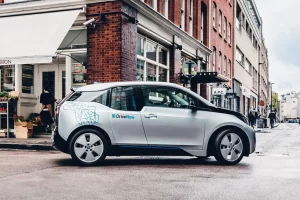How Do Car-Sharing Services Impact on Ownership of Cars?

Car sharing services are becoming more popular, but how do they impact the ownership of cars? These services offer a variety of benefits including increased equity, increased mobility options for transportation disadvantaged individuals, and a reduction in tax premiums.
Peer-to-peer car sharing could outstrip traditional car-sharing services
The ride-hailing industry has evolved from the idea of sharing to a reality that has changed the road transport experience. It provides urban dwellers with access to alternative modes of commercial passenger transport. In the process, it promotes flexible access to underused goods and services, and encourages shifts from traditional public transport.
The share economy has developed rapidly in a number of service sectors, including transportation. Its development has led to the creation of new business models and opportunities. Ultimately, it can be used to address the challenges of global poverty and unemployment, as well as inefficient urban transport.
However, the rise of ride-hailing firms has created new challenges. These include the deepening of gender inequalities in the commercial passenger transport sector. For instance, males dominate the ride-hailing industry as drivers and car owners. Females, on the other hand, have limited opportunities to benefit directly from the ride-hailing industry as service providers.
Furthermore, the study found that ride-hailing companies stimulate ‘turf wars’ among taxi drivers. They also offer promotional offers that incentivize unhealthy driving behaviors, such as speeding.
Increased equity by improving mobility options of people who are transportation disadvantaged
Providing subsidized ridesharing services to low-income populations would greatly expand the mobility options of these people. It is critical to remember that the benefits of such programs are not equal for everyone. The federal government should authorize a pilot program to test this approach.
Subsidies should be targeted to specific groups, such as families and people living below the federal poverty line. These subsidies would improve mobility, while also improving social equity. This is especially important for low-income households, which typically have fewer vehicles and have longer commutes.
If such subsidies were available, these individuals could also use the services to connect with larger public transit systems. In addition, such a policy would increase opportunities for people to access jobs. Many of these jobs are located within a few miles of their homes, but are out of reach for many low-income families.
For example, in the southern San Joaquin Valley, California, many affordable housing complexes host round-trip electric car-sharing hubs. Several local nonprofit organizations support the Green Raiteros and Valley Go programs in the region.
Eco-labelling for car-sharing
If car-sharing services have an ecolabel, then they can be seen as providing high standards. In addition, buyers are encouraged to select environmentally friendly cars. However, there are multiple regulatory hurdles involved in getting an ecolabel. And, if a community is not ready to establish a badge system, it is likely that the organization must rely on legitimate power.
Studies have shown that car sharing reduces pollution and vehicle travel. It has also been shown to increase participation in a community. But some members freeride on the system.
As a result, a car-sharing community must consider how it can manipulate the organization’s power to enhance its contributions. Several studies have analyzed how power affects participation in a sharing community.
McCarter, et al. (2011, in press) tested a hypothesis that the level of power in a sharing community can influence the way it contributes to the shared good. Their findings indicate that individuals in a sharing community are more likely to share when they feel trusted. Specifically, they are more willing to share if they perceive that the community has rules and requirements.
